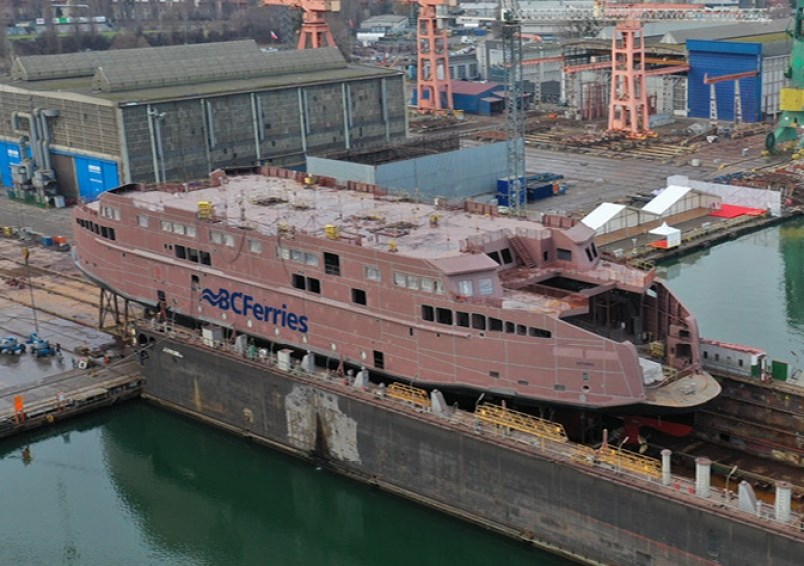Next year, you'll be able to catch a ride on the Salish Heron.
That's the name chosen by BC Ferries for its newest Salish-class vessels, a 351-foot-long ferry that will be put into service in 2022 between Swartz Bay on Vancouver Island and the southern Gulf Islands of Pender, Saturna, Mayne and Galiano.
The name was one of the short-listed suggestions coming out of a 2015 public naming contest for the three previously constructed Salish-class ferries, and “both the West Coast travel experience and the culture of British Columbia,” B.C. Ferries said Tuesday in a statement.
Like its siblings, the Salish Orca, Salish Eagle, and Salish Raven, the Salish Heron will feature Coast Salish artwork on the exterior and interior.
BC Ferries is working with the First Peoples’ Cultural Council, which will facilitate the artist selection process with an adjudication committee that will include Indigenous artists and BC Ferries’ representatives.
"From the first round of submissions, the committee will select several artists to be shortlisted and commissioned to propose specific design concepts," explains BC Ferries in a media release. "From these proposals, one artist’s designs will be selected for final refinement, adhering to BC Ferries’ specifications for fabrication and application."
"This project raises the profile of Coast Salish artists in B.C. and shares the beauty of their work with an international audience. Providing space for Indigenous artists is a positive step towards reconciliation and a visual acknowledgment of the thriving cultures of the First Peoples of these waters," said Sarah Pocklington, FPCC Arts Program Manager.
The Salish Heron will run on liquefied natural gas and have the capacity for 138 vehicles and up to 600 passengers and crew. When it comes into service, the diesel-fuelled Mayne Queen ferry will be retired.
In December, the Salish Heron was launched at Remontowa Shipbuilding in Gdansk, Poland. Sea trials are continuing this year.
The total project budget, including financing and project management costs, is approximately $92.3 million.
With files from Carla Wilson/Times Colonist




